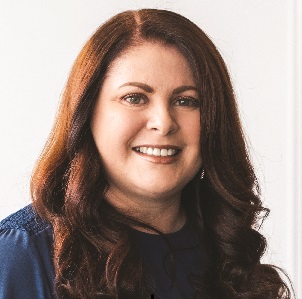Releasing Medical Records – Take Note
28 Feb 2017

Under the privacy legislation, patients are entitled to access their medical records and also extend this authority to a range of third parties, including insurance companies. If a patient makes a claim under an insurance policy, you will likely be asked to provide medical records.
A request from the patient’s lawyers
If this request does not relate to concerns about your clinical care, the process is simple. You can provide a copy of the medical records if the request is accompanied by a current authority, signed by the patient, which refers to a release of medical records and noting who has been given authority to make the request.
Requests from the insurance company and/or their lawyers
This is a little more complicated. You might have received a letter from an insurer or their lawyer along the following lines: We enclose a copy of an authority from the patient and request that you provide a complete copy of the patient’s medical record.
Often the authority enclosed is not recent (older than six months) or is non-specific and signed upon submission of the claim. Electronic or unsigned authorities are not acceptable forms of consent. Patient authorities can vary between insurers and jurisdictions, and can be difficult to interpret.
Does a signed authority give you carte blanche to release patient notes?
The short answer is no. When a patient signs a claim form which includes a broad consent, they may not have anticipated their entire medical record would be requested. Sometimes the authority is straightforward and the patient’s wishes are clear – but if uncertain, you should contact the patient to seek verbal consent. Alternatively, you should ask the insurer to provide you with a specific and up-to-date authority signed by your patient, authorising release of the requested medical records.
A patient may sign an authority for release of their medical information, but they also have the power to revoke this.
Responding to the request
The patient should be made aware that non-compliance with a request for medical records may affect the insurer’s ability to assess the claim. The patient should also know that if the matter progresses, the records could be subpoenaed and you will be obliged to comply regardless of whether the patient consents.
If a patient does not provide consent for the entire record to be released, you should respect their wishes in this regard. A dispute over consent to release records is ultimately between the insurer and the patient, not the doctor.
From a practical perspective, you may be asked to remove a specific consultation or the patient might consent to the release of records from a specific date. In this case, you must make it clear when you respond to the requesting party what you have or have not included, and that you are acting under the patient’s instructions.
Am I obliged to write a report?
You are not legally obliged to write detailed reports for insurers, although it may be necessary for the patient to advance their claim. A report will not satisfy your obligations under the privacy legislation unless the requesting party accepts a report or summary in lieu of the notes.
Can I charge for providing copies of medical records?
Yes. In accordance with the privacy legislation: An organisation may, however, impose a charge for giving access to requested personal information, provided the charge is not excessive. (APP 12.8)1
If you need guidance on appropriate charges, we recommend you consult the schedule published by the AMA NSW and the Law Society NSW.2
Unauthorised release of medical records could result in an AHPRA or privacy complaint. If you are ever in doubt, or your medical records include documents marked “privileged”, contact our Medico-legal Advisory Service.
Nerissa Ferrie
Medico-legal Adviser
MDA National
References
- Office of the Australian Information Commissioner. APP 12 – Access to personal information. Available at: oaic.gov.au/agencies-and-organisations/app-guidelines/chapter-12-app-12-access-to-personal-information#access-to-personal-information
- The Law Society of New South Wales. Schedule: Allowances to Witnesses and Suggested Fees for Medical Examinations and Reports 1 November 2015

Doctors, Let's Talk: Setting Boundaries At Work
A conversation with Nicola Campbell, Psychiatry Registrar, that explores the necessity of setting professional boundaries as a Junior Doctor.
07 Dec 2022

Doctors, Let's Talk: Your Support Network Is Your Net-Worth
A conversation with Nidhi Krishnan, Paediatric Registrar, that explores the value of building a strong network as a Junior Doctor.
07 Dec 2022

Doctors, Let's Talk: Are Retreats Worth The Money?
A conversation with Dr Emily Amos, General Practitioner, International Board Certified Lactation Consultant, and registered mindfulness teacher, that explores the utility of mindful retreats and self-care among Junior Doctors.
07 Dec 2022

Doctors, Let's Talk: Is Quitting Medicine Ever The Answer?
A conversation with Dr Ashe Coxon, General Practitioner, career counsellor, and founder of Medical Career Planning, that explores the issue of dealing with career uncertainty as a Junior Doctor.
07 Dec 2022


